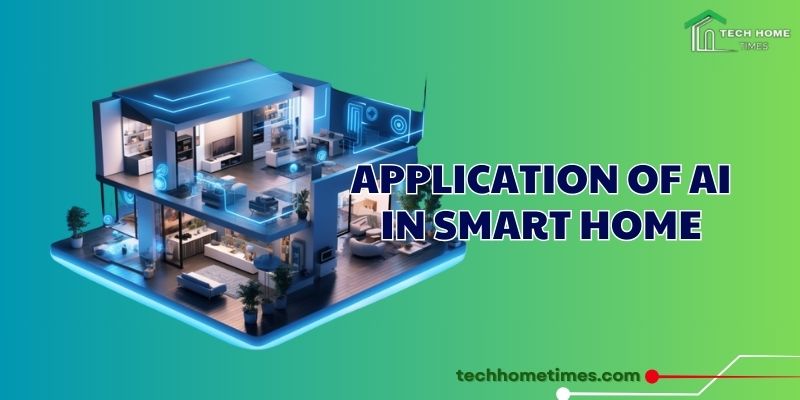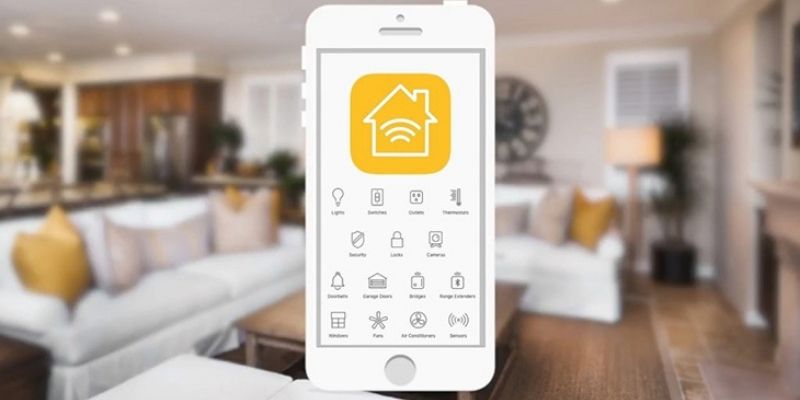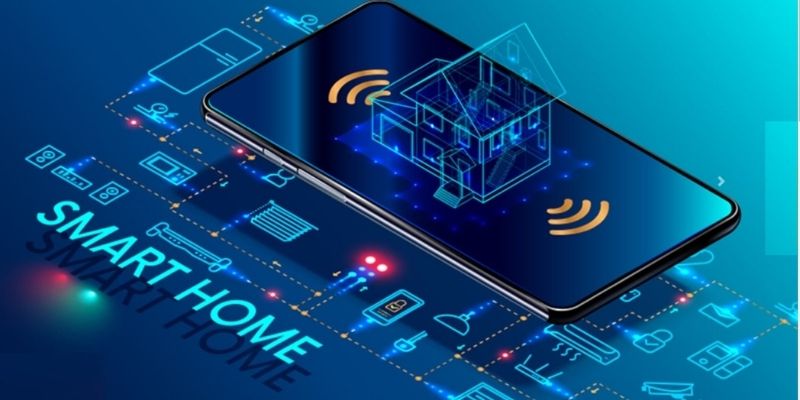Real-World Application of AI in Smart Home

This analysis will explore the crucial role of the application of AI in smart home systems, delve into key real-world examples of its implementation, discuss future expectations for its evolution, and conclude with the transformative impact of AI on residential living.
Contents
The Role of the Application of AI in Smart Home

The application of AI in smart home systems serves as the central intelligence layer, enabling devices to move beyond pre-programmed instructions and adapt to user needs and environmental changes dynamically. AI algorithms analyze vast amounts of data collected from various smart devices – sensors, cameras, thermostats, appliances – to identify patterns, learn user preferences, and make intelligent decisions. This role is multifaceted:
Enhancing Automation
AI elevates basic automation to intelligent automation. Instead of simply following schedules, AI-powered systems can predict needs and automate tasks proactively.
For example, an AI-driven lighting system might adjust brightness and color temperature based on the time of day, natural light levels, and user activity patterns, without requiring manual input.
Personalizing User Experience
A key role of the application of AI in smart home is to create highly personalized experiences.
By learning individual preferences for temperature, lighting, entertainment, and security settings, AI can automatically tailor the home environment to each resident’s specific needs. Voice assistants powered by AI further enhance personalization through natural language understanding and the ability to learn individual voices and preferences.
Improving Efficiency and Sustainability
The application of AI in smart home plays a significant role in optimizing energy consumption and promoting sustainability.
AI algorithms can analyze energy usage patterns, identify areas of waste, and automatically adjust settings on thermostats, lighting, and appliances to minimize energy consumption and reduce utility bills. Integration with smart grids and renewable energy sources can further enhance these efficiency gains.
Bolstering Security and Safety
AI significantly enhances the security and safety of smart homes. AI-powered security cameras can distinguish between people, pets, and vehicles, reducing false alarms.
Facial recognition technology (with appropriate privacy safeguards) can identify familiar faces and alert homeowners to unknown individuals. AI algorithms can also analyze sensor data to detect anomalies indicative of potential security breaches or safety hazards, such as unusual activity patterns or the presence of smoke or carbon monoxide.
Facilitating Natural Interaction
The application of AI in smart home enables more natural and intuitive ways for users to interact with their connected devices.
Natural Language Processing (NLP) allows voice assistants to understand complex commands and engage in more conversational interactions. AI can also enable gesture control and other forms of non-verbal communication with smart home devices.
Key Real-World Applications of AI in Smart Home

The transformative impact of the application of AI in smart home is evident in numerous real-world implementations:
As mentioned, AI-powered voice assistants like Alexa, Google Assistant, and Siri are central to many smart home ecosystems. Their ability to understand and respond to natural language commands, control a wide range of smart devices, provide personalized information, and automate routines showcases a significant application of AI in smart home convenience and control.
Learning thermostats like Nest and ecobee utilize AI algorithms to understand user temperature preferences and automatically adjust settings for optimal comfort and energy savings. Their ability to learn schedules, respond to occupancy, and integrate with weather forecasts demonstrates a practical application of AI in smart home efficiency.
Smart security cameras with facial recognition, object detection, and anomaly detection, along with intelligent door locks and alarm systems that learn user behavior, exemplify the application of AI in smart home security. These systems provide more accurate alerts and proactive protection.
AI-driven lighting systems that adjust brightness and color temperature based on time of day, natural light, and user activity, and that can learn preferred lighting scenes, showcase an intelligent application of AI in smart home comfort and energy management.
Robot vacuums that use AI for intelligent mapping, object recognition, and efficient cleaning paths demonstrate a practical application of AI in smart home automation of household chores.
AI is increasingly being integrated into household appliances like refrigerators that can identify food items and suggest recipes, and ovens that can automatically adjust cooking times and temperatures, illustrating a growing application of AI in smart home convenience and efficiency in the kitchen.
Future Expectations of AI Applications in Smart Home

The application of AI in smart home technology is poised for even more significant advancements in the coming years:
- Future AI applications will likely focus on anticipating and addressing potential issues before they arise, such as predicting appliance failures or identifying potential safety hazards based on usage patterns.
- AI will enable even more granular personalization of the home environment based on individual user needs, preferences, and even emotional states.
- Continued efforts towards open standards and improved interoperability will allow AI algorithms to orchestrate a wider range of devices and services more effectively.
- AI will enable smart homes to become more context-aware, understanding the current situation and user intent to trigger relevant automation without explicit commands.
- As robots become more integrated into smart homes, AI will be crucial for enabling more natural and intuitive communication and collaboration between humans and robots.
The application of AI in smart home technology is fundamentally transforming our residences into intelligent ecosystems that are more convenient, efficient, secure, and personalized. To Tech Home Times, embracing the application of AI in smart home is embracing the intelligent future of residential living, where technology seamlessly adapts to our needs and makes our homes truly smart.






